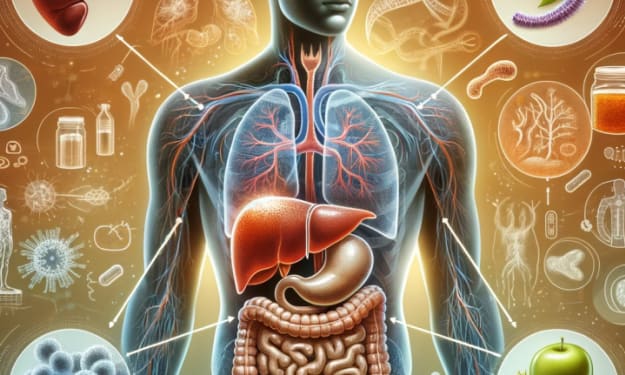When you start following the MIND Diet, here's what happens to your brain health.
This is for you!

U.S. News and World Reports publishes a list of the best eating programs every year. This list is unrelated to what's "in" or what celebrities are up to. It's about what nationally renowned nutritionists and doctors, especially experts in heart health and human behavior, genuinely prescribe.
You might be able to figure out what topped their newly released 2022 list. The Mediterranean diet, which has previously topped the list, was ranked first once more, followed by the DASH diet and the Flexitarian diet. But there's one diet in the top five that doesn't garner nearly as much attention as the top three. The MIND diet (number four on the list) is an eating pattern devised by researchers based on studies demonstrating the protective effects of specific foods linked to brain health. MIND stands for Mediterranean-DASH Intervention for Neurodegenerative Delay, and the eating plan was created by Rush University Medical Center nutrition expert Martha Clare Morris, PhD, and her colleagues.
The meal plan is broken down into 15 categories: There are ten types of brain-healthy foods and five types of foods to avoid. Leafy greens, vegetables, whole grains, legumes, nuts, berries, poultry, fish, and olive oil are among the foods that people are urged to eat the most. You'll get enough of omega-3 fatty acids, protein, fiber, and antioxidants this way, all of which have been scientifically proven to aid the brain.
Can you truly expect to notice a change in the short and long term if you go from a regular American diet to the MIND diet for brain health? Yes, according to registered dietitians who have thoroughly researched the diet. Kelli McGrane, RD, author of MIND Diet for Beginners ($12) and Julie Andrews, RD, author of The MIND Diet Plan & Cookbook ($13), both discuss how following the MIND diet improves brain health, both immediately after making the transition and whether you stick with it for good.
If you're used to eating a diet high in nutrient-poor foods and then transition to the MIND diet, Andrews says one of the first changes you'll notice is improved concentration and focus. This is because the eating plan's foundations have been directly connected to boosting brain function in various ways, she continues.
McGrane concurs. "In my professional experience as a counselor, I routinely heard clients comment that cutting back on ultra-processed meals and introducing more whole foods into their diets made them feel more energized and reduced brain fog," she says. What's been minimized, mainly sugar, sodium, and simple carbs, is just as important as the meals you're eating. These foods are known to produce brain fog because they cause sharp spikes and decreases in blood sugar levels, which impede mental clarity.
Aside from enhanced mental clarity, Andrews notes that improved mental health is another cognitive benefit you could notice quickly after starting the eating regimen. This is because, not surprisingly, the foods that have been proven related to lowering anxiety and depression symptoms are prominent in this eating plan. (This includes, for the record, entire grains, legumes, fruits, vegetables, olive oil, and nuts.) More research focusing exclusively on the MIND diet, according to McGrane, are needed to prove the link. "Right now, there's very little data on the link between the MIND diet and mental health, notably depression and anxiety," she adds, adding that the research that is available yields conflicting results.
While the way you eat might have a big impact on your focus and mood, McGrane points out that it's only one part of the issue. Other lifestyle factors, including as getting enough sleep, exercising frequently, and staying hydrated, are also important, according to her. However, the instant benefits you'll notice after beginning the MIND diet for brain health are likely to motivate you to remain with it. That, too, has its own set of advantages.
What happens to your brain when you follow the MIND diet long term:
Both experts agree that if you stick to the MIND diet, the initial benefits of enhanced focus and, in some cases, better mental health will endure. You're also less likely to develop dementia, Alzheimer's, or other cognitive illnesses, according to experts. Andrews says, "The study on the MIND diet is promising for long-term impacts on brain health." "In fact, research conducted by Rush University, the birthplace of the MIND diet, show that those who adhere to the MIND diet have a 53 percent lower risk of getting Alzheimer's disease!" Furthermore, Andrews claims that you don't have to follow it to the letter to get the benefits."Even if you only follow some of the MIND diet's suggestions, you can minimize your risk of acquiring Alzheimer's disease. It's quite effective "she explains.
McGrane goes on to say that the dietary plan is linked to long-term brain health, not simply memory. "It may also aid in the prevention of overall cognitive deterioration. Indeed, the Memory and Aging Project discovered that consuming one serving of leafy green vegetables per day—a crucial component of the MIND diet—was linked to a reduced rate of cognitive loss "she explains.
The science-backed link between the MIND diet and cognitive decline prevention is quite exciting, but it's also vital to remember that there are other factors at play, some of which are absolutely beyond our control. We can't control everything that occurs to us as we get older, unfortunately.
Because the MIND diet includes short- and long-term brain benefits, both nutritionists say the eating plan is for everyone, but Andrews says it's especially useful for seniors. She explains, "It's specifically developed to help people of all ages lower their risk of Alzheimer's disease, dementia, and cognitive decline." "I recommend it for anyone who have been diagnosed with these disorders or have a family history of them, but the guidelines are beneficial for everyone, and it's never too late to start implementing these recommendations into your lifestyle."
If the prospect of trying it seems daunting, McGrane suggests starting small (a few MIND diet-inspired meals per week) and not getting too caught up in perfection. It's important to remember that you don't have to follow it to the letter to enjoy the rewards. There are also useful cookbooks full of food ideas, such as each expert's own books.
The MIND diet is beneficial since it is not overly restrictive. (Though, to be honest, no long-term eating plan should be.) When you follow to the meal plan, there's no shortage of meals you can prepare—no matter what your taste preferences are. In the process, you'll be helping your brain in a variety of ways. Something to bear in mind, to be sure.





Comments
There are no comments for this story
Be the first to respond and start the conversation.